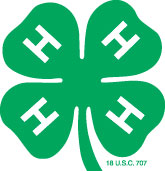Note: The PDFs linked on this page are no longer maintained and may not meet current accessibility standards. To request content in an accessible format, contact us.
The 4‑H Climate Science Education Program teaches youth about the science, causes, and impacts of climate change. It also helps youth develop a greater understanding of global climate change and its impact on our local communities and our world, and empower them with the knowledge and skills to take action at home, at school, and in the community while addressing a variety of 4‑H Science, Engineering and Technology (SET) areas.
After multiple reviews of science content and piloting of numerous activities, the lessons provided in this introductory unit demonstrate effective use in out of school (OST) programs and for a diverse audience of youth. Lessons in this first unit focus on introduction to climate science, and the causes, evidence, impact, and solutions of climate change as related to carbon dioxide emissions. In each lesson, youth are engaged to understand the correlation between the rising global temperature and the increase of carbon dioxide in our atmospheres (PDF). Throughout this unit, youth are encouraged to understand how small changes in their actions can help minimize their individual carbon footprint.
Each lesson includes the objective, core standards, and step-by-step instructions to prepare, conduct, and reflect on the activity, science, and impact. Facts and educational background information for the instructor needed for helping the youth process and generalize are also included in each lesson. Additional resources are also provided for the instructor to find more detailed science or information.
Teaching Tips & Reflective Learning
Reflective questioning is a method in which the teacher/facilitator asks questions designed to encourage participants to expand their thinking, knowledge, experiences, and ideas. It is a method to help debrief, process, and review the lesson, activity, or experience and is an essential part of learning.
The 4‑H Youth Development Program uses a learn–by–doing, or Experiential Learning, philosophy and methodology in programming. The cycle includes reflective questioning when participants SHARE what they did, felt, or experience doing the activity and during the APPLY/PROCESS step. The Reflective Learning Teaching Tips (PDF) information provides information on reflective thinking environments, structuring questions, and examples of questions.
Ask about educator training and professional development opportunities!
Contact Marissa Saffen, marissa.staffen@rutgers.edu.

